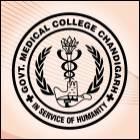The Combined Medical Services Examination (CMSE), conducted by the Union Public Service Commission (UPSC), presents a unique opportunity for medical graduates to embark on a rewarding career serving the Indian government. This comprehensive guide dives into the key aspects of the CMSE, equipping you with the knowledge and insights to navigate the selection process and achieve your goals.
Understanding the Fundamentals:
- What is it? The CMSE is a competitive exam that opens doors to entry-level Medical Officer positions in esteemed organizations like Indian Railways, Municipal Corporation of Delhi, and Indian Ordnance Factories.
- Who conducts it? The UPSC, renowned for its rigorous and transparent selection processes, administers the CMSE exam.
- When is it held? The notification for the exam typically unfolds in April, followed by the written exam in July.
Eligibility Criteria:
- Nationality: Indian citizen, subject of Nepal/Bhutan, or specific categories of refugees and migrants of Indian origin.
- Age: Not exceeding 32 years (relaxations applicable for reserved categories).
- Educational Qualification: Must have passed the final MBBS examination (written and practical).
Exam Structure:
The CMSE comprises two stages:
Stage 1: Written Examination
- Format: Objective type, two papers of two hours each, 250 marks per paper.
- Paper I: Covers General Medicine (including Cardiology, Neurology, Dermatology, Psychiatry), and Paediatrics.
- Paper II: Focuses on Surgery (including ENT, Ophthalmology, Traumatology & Orthopaedics), Gynaecology & Obstetrics, and Preventive & Social Medicine.
Stage 2: Personality Test (PT)
- Nature: Conducted by the UPSC to assess personality, suitability, and communication skills.
- Marks: Carries 100 marks, crucial for final merit ranking.
Charting Your Course to Success:
- Embrace Early Preparation: Begin studying well in advance to comprehensively cover the vast syllabus. Consistency is key.
- Adhere to the Syllabus: Strictly follow the UPSC-prescribed syllabus to avoid wasting time on irrelevant topics. Focus on depth over breadth.
- Leverage Standard Textbooks: Refer to authoritative medical references like Harrison’s Principles of Internal Medicine and Bailey & Love’s Short Practice of Surgery.
- Master Past Papers: Analyze previous years’ questions to understand the exam pattern, difficulty level, and recurring themes. Practice under timed conditions.
- Consider Coaching (Optional): Explore joining coaching institutes for structured guidance, mock tests, and expert insights tailored to the CMSE.
- Time Management is Crucial: Practice solving questions within the stipulated time to prevent last-minute pressure and ensure well-rounded performance.
- Stay Updated: Keep yourself abreast of current medical advancements and healthcare policies relevant to the Indian context. Demonstrate awareness and adaptability.
- Develop Soft Skills: Hone your communication, interpersonal skills, and leadership qualities to shine during the PT stage. Make a positive and confident impression.
Additional Resources:




